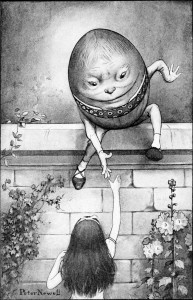“Knowledge, action, and evaluation are essentially connected. The primary and pervasive significance of knowledge lies in its guidance of action: knowing is for the sake of doing. And action, obviously, is rooted in evaluation. For a being which did not assign comparative values, deliberate action would be pointless; and for one which did not know, it would be impossible. Conversely, only an active being could have knowledge and only such a being could assign values to anything beyond his own feelings. A creature which did not enter into the process of reality to alter in some part the future content of it, could apprehend a world only in the sense of intuitive or esthetic contemplation; and such contemplation would not possess the significance of knowledge but only that of enjoying a and suffering.
“The interest of action is not an interest in what is before us, on its own account, but an interest in what will be or may be . And the interest of that knowledge of the world which guides our action is the same. For the cognizing mind, something immediately presented – some item of direct experience – is a sign of something else, not so present but likely to become realized or capable of being realized in further experience. Only so can what is said to be known be something capable of being verified; since obviously, to verify is to submit what is in question to the test of some experience, not given when the verification is called for but which may be given. Further; what an empirical cognition thus predicts as capable of being verified will, in the typical case if not in all cases, depend in some part on our action. If verification does not of itself and necessarily imply action, at least it is only where what is apprehended is conditional upon action that knowledge could be other than futile. A predicted future which should follow fatally upon what is presently given, is a future it would be pointless to foresee, since ex hypothesi nothing could be done about it. Knowledge which serves for the guidance of action must anticipate the future, but a future to which the action itself will make a possible difference.” (CI Lewis, Analysis of Knowledge and Valuation , p. 1).
For The Intuitive Factor in Psak, (Hebrew) click here:
For Computer Power and Human Reason click here:


